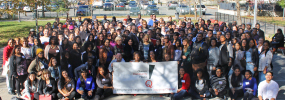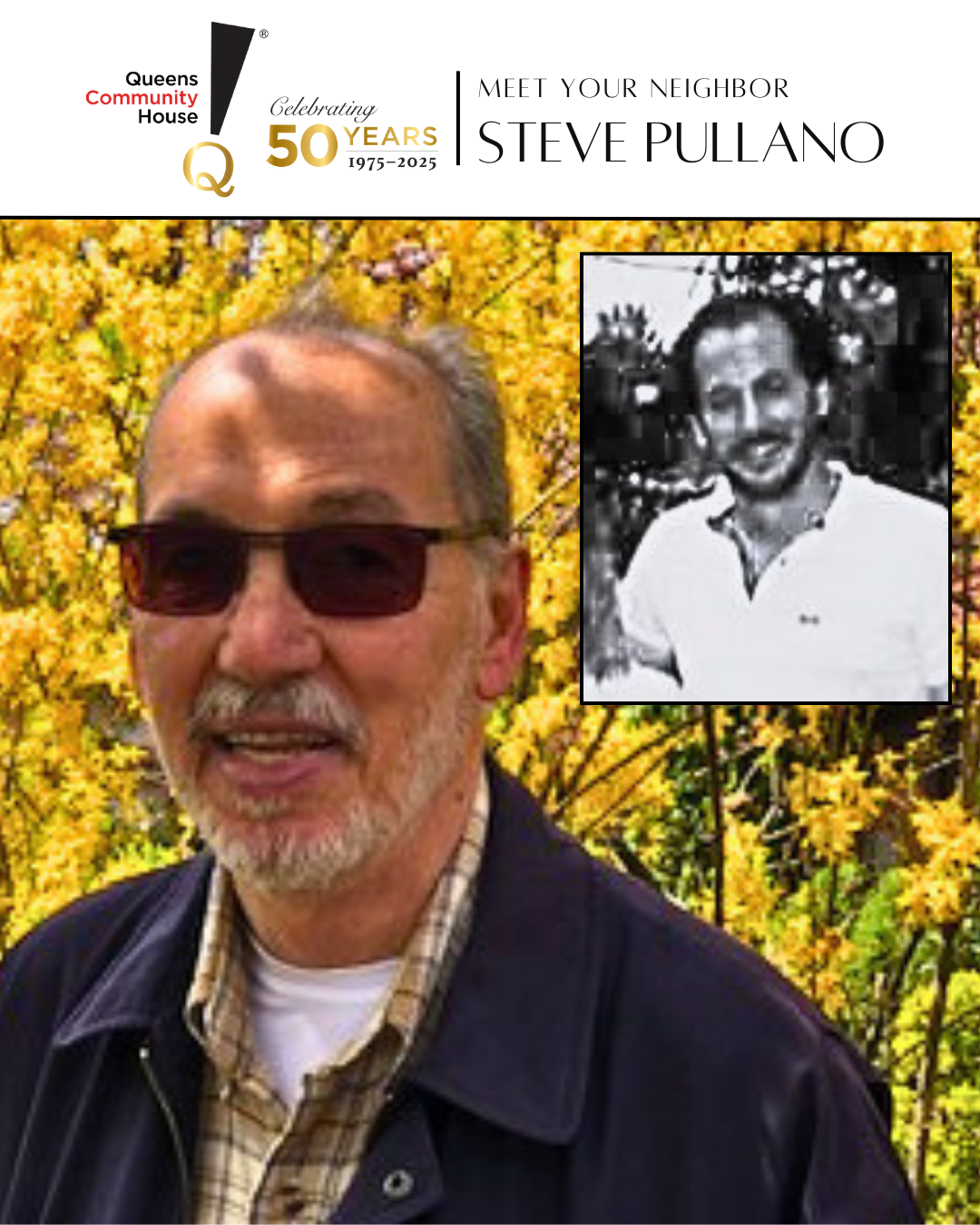
Support Queens Community House
Queens Community House provides individuals and families with the tools to enrich their lives and build healthy, inclusive communities.

"In 1983, I was a teacher at Halsey JHS, close to the Forest Hills Community Center. I started volunteering with the Community House with the Meals On Wheels Program and then I was offered a job as a Youth Worker. It was a new position with no job description. Community members had been complaining to the police about young people hanging out in the neighborhood and causing disturbances, and the local precinct asked us if we could do something to help.
I was hired, along with Mike Napp, to engage the youth and get them involved in positive activities. How we did it was up to us. I drew up a map of the neighborhood, divided it into sections, and every afternoon we would go out to parks, playgrounds, pizza parlors – places where the young people congregated (which the police referred to as 'hot spots'). We didn't identify ourselves, just carried footballs, basketballs, a radio and hung out. Eventually the youth would come over to find out what we were doing in 'their' space. And we would start to talk.
We didn't want to impose our ideas of what to do – instead, we asked them what they wanted. They told us they wanted sports activities, and they wanted jobs. They wanted help with school. They asked us questions about life, about relationships, about anything. And we tried to help them with these things as best we could. We helped them build a skateboard ramp. We organized pickup basketball games. We took them on trips – to museums in Manhattan, to baseball games, to Washington DC. The core was all about developing relationships and showing them respect.
After 7 or 8 months, we were embedded in the community, and the young people knew where to find us. More and more showed up each week. There were fewer complaints being made to the precinct, so we figured we were doing something right. As time went on, and trust was established, they began to come inside the community center, to participate in activities there. Eventually we began adding on components – job placements, college access support, peer counseling, leadership training, and the Access for Young Women program and NICE intergenerational program.
We learned that the young people didn't want to be told what to do or how to behave. We gave them the power to make their own decisions, to live with the consequences, and to create the world they wanted to be part of."
— Steve Pullano